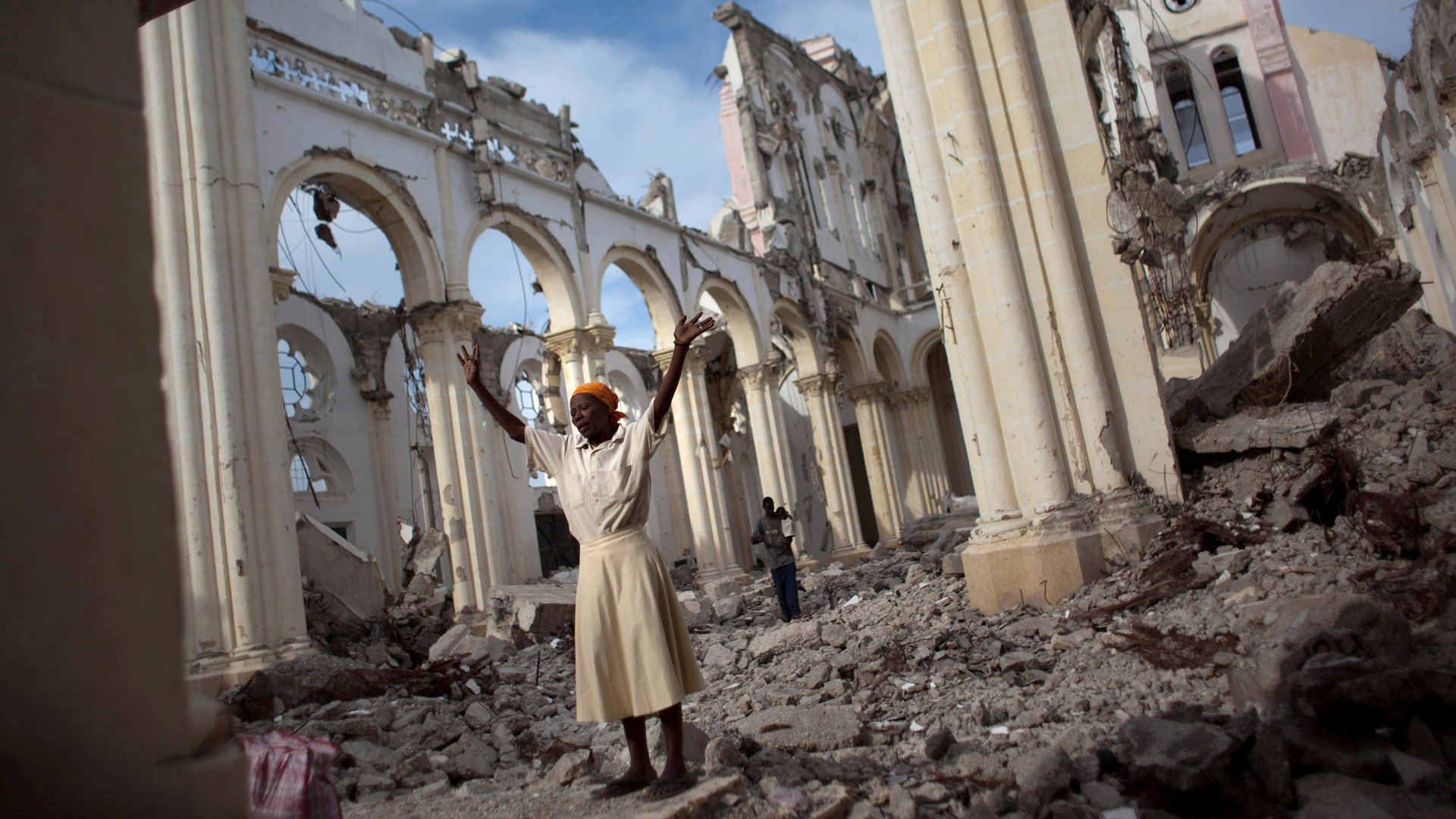Gang violence, which has been escalating for months in Haiti, led to at least 209 people being killed in the capital, Port-au-Prince, in the 10 days between 8 July and 17 July, according to UN figures.
Roughly half of these killings – more than 20 each day on average – were of civilians with no known gang links. At least 254 more received gunshot wounds. Intense firefights, usually confined to strategic hotspots or shantytowns like Cité Soleil, were reported in the heart of the capital on 27 July.
Since the assassination of president Jovenel Moïse in July 2021 and an earthquake the following month that killed thousands in the Caribbean nation’s southern peninsula, The New Humanitarian has stepped up its reporting.
Here’s a collection of our recent work that aims to give voice to those affected while highlighting the challenges for those searching for a path forward.

Stolen future: Haiti’s gangs and its children
After gaining rare access to current and former gang members, The New Humanitarian published this short film in February exploring not only how gang violence had paralysed the Caribbean country and prevented crucial aid from getting to millions of hungry and displaced people, but also how it was trapping a generation of children in a cycle of abuse and despair.

Can Haiti’s gangs help build a better future for the country?
Haiti has one of the youngest populations in the Caribbean, but without jobs or opportunities, many have turned to gangs for quick cash and power.

There’s a wide gap between aid’s promise and reality, Haitians say
Lack of trust, feelings of shame, and not enough information characterise the experience of receiving aid, a survey reveals.

In Haiti, gang violence strains aid operations and demands new approaches
With 2.5 million in need living in areas under armed control, aid groups have to find ways to work with the gangs despite the escalating violence.

Can Haiti rebuild a food system broken by disaster, historical injustice, and neglect?
Years of political unrest, under-investment in agriculture, and repeated earthquakes and storms have left 4.3 million people facing acute hunger.

In Haiti, disaster risks linger as another earthquake anniversary passes
“Build back better” became a guiding mantra after calamity struck in 2010, but Haiti has struggled to follow it and prepare for future disasters.

OPINION: Exploitative and ineffective international engagement created Haiti’s migration crisis
Between foreign intervention, natural disasters, and the debilitating impact of an unaccountable aid system, the country has become unlivable.

Coronavirus in Haiti: Weakened by past disasters, the country was already in crisis
Due to a string of setbacks over the last decade and a recent economic crunch, the country was in danger of unravelling even before COVID-19.

Hunger in Haiti: Ten years after catastrophe struck, a new crisis looms
A catastrophic earthquake on 12 January 2010 crushed much of Haiti’s capital, Port-au-Prince, in one of the worst natural disasters ever to strike a populous urban centre. Ten years on, the nation is on the brink of another, very different, crisis.

FILM - Needed but Unwanted: Haitians in the Dominican Republic
Hundreds of thousands of people of Haitian descent living in the Dominican Republic are at risk of arbitrary deportation or of becoming stateless. Even though many were born in the Dominican Republic or have lived there for decades, tens of thousands have either been forcibly deported or have fled the crackdown and legal uncertainty.







